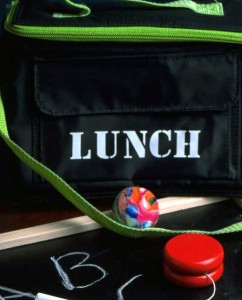Board of Ed. members ask why it makes to sense to tamper with self-sufficient operation
By Mike McGann, Editor, UnionvilleTimes.com
 EAST MARLBOROUGH — The march to privatizing school district food services — and potentially other services — may hit a bump in the road if the Unionville-Chadds Ford Board of Education decides later this month not to hire a consultant to look at outsourcing.
EAST MARLBOROUGH — The march to privatizing school district food services — and potentially other services — may hit a bump in the road if the Unionville-Chadds Ford Board of Education decides later this month not to hire a consultant to look at outsourcing.
During Monday night’s Finance Commitee meeting, board members discussed a proposed consulting deal with Carol H. Gilbert Consulting, some members questioned whether it made sense spend money on a service that is currently breaking even — that is operating without any cost to taxpayers.
Marie Wickersham, Supervisor of Food Service for the Unionville district, broke down the operation for food service at the district’s six schools, noting that the $2.1 million operation basically runs like a small, stand alone business within the district administration. In addition to generating the revenue to pay for food and staff salaries and benefits, the operation has paid for its share of equipment and building expenses, she noted.
“We operate on the idea that we should be self-sustaining,” Wickersham told the board. She noted that there is some state and federal funding and the food service used to do some in-district catering — now vastly curtailed because spending reductions within the district. She noted that the food service operation was running a deficit of about $150,000 before she took over management some years back.
She also noted that any savings found in the operation would only be seen in lunch prices — extra money earned by the food service operation cannot be transferred back to the general operating budget. Wickersham said she helps to coordinate a regional buying co-op that results in lower food costs for the school districts that participate.
After going the financials for the food service operation, some board members asked why it was necessary to make changes.
“What do we hope to gain?” board member Jeff Lesier asked. “It won’t be a revenue source to the district.”
“I say, if it’s not broken, don’t fix it,” board member Holly Manzone said.
Other members cited labor costs as a potential problem, especially with looming pension spikes for school employees.
“It’s likely that labor costs are going to up in the future,” Jeff Hellrung said. “Our students pay for the costs of food service. Our students would pay less if we can deliver the same services at a lower price.”
Wickersham did note that few food service employees are full time and qualify for pensions, which means the impact of expected increases in contributions to employee pension plans will somewhat limited.
As the meeting went on, it appeared that it might be hard for the consulting contract to get the five votes needed for approval at the Feb. 22 school board meeting. Finance Commitee chair Keith Knauss suggested opting not to look for savings, whether the food service stays in house or is privatized, could forestall future efforts in this area.
“If we don’t ask the questions now, we’re not going to ask the questions later,” he said.
Board president Timotha Trigg, said she disagreed, saying that if food service prices — which are set by the board of education — are forced to increase, the board could then revisit the idea of looking for savings in the program.






